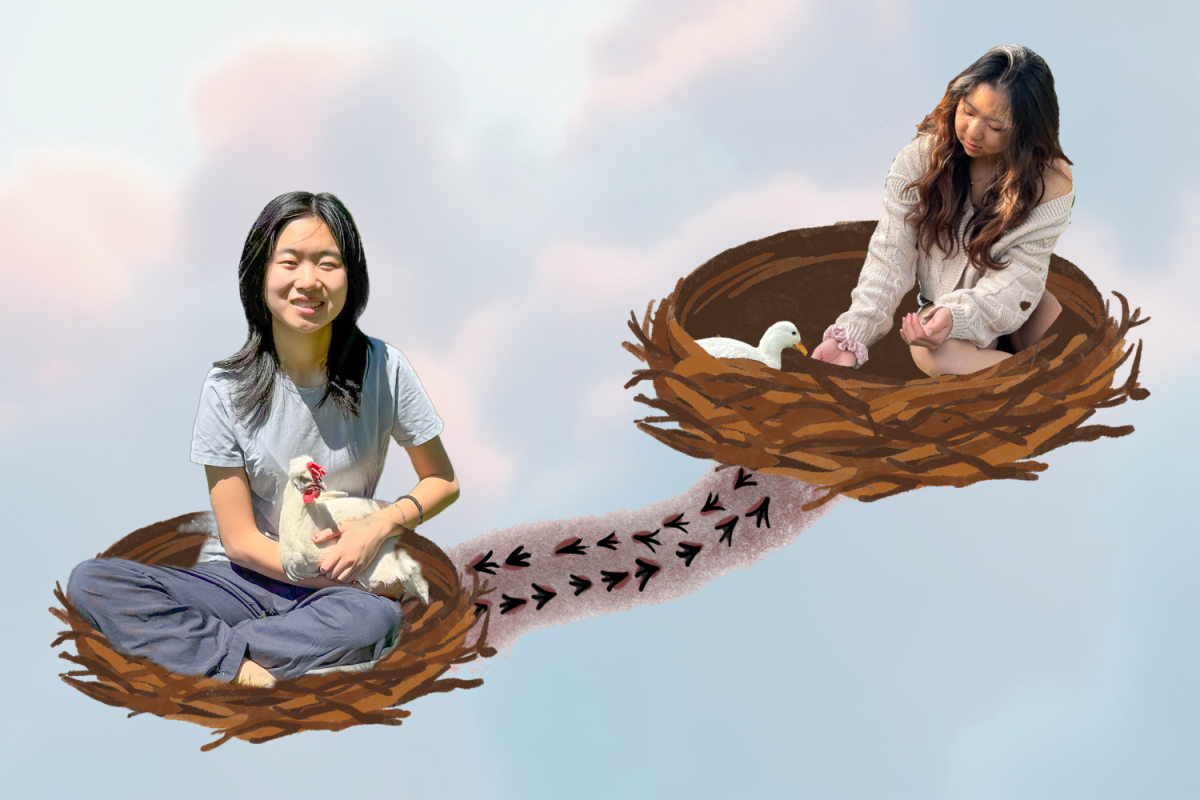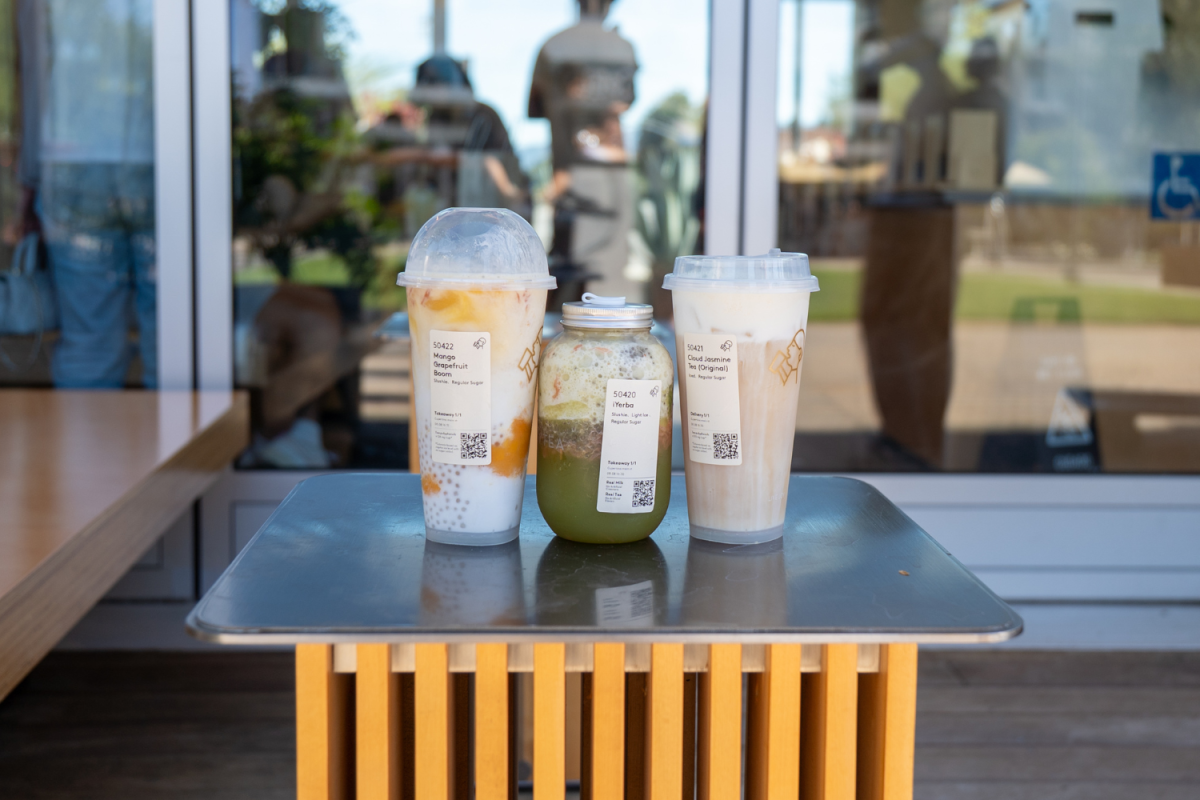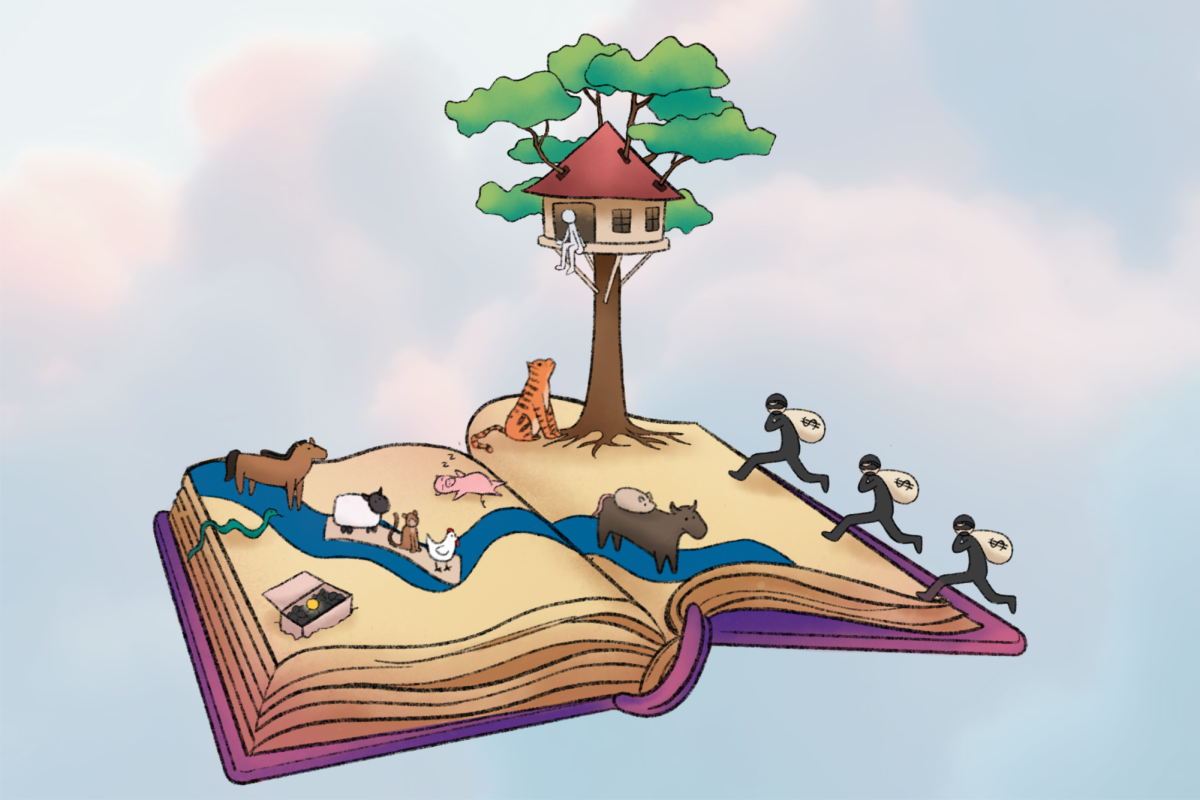The debate between dogs and cats has split many pet-lovers, but senior Alicia Cho and junior Felicia Huang provide a unique perspective to the argument. Ever since Cho got her chickens in elementary school and Huang got her ducks during quarantine, they both enjoy the company of and care for their feathered friends.
Felicia Huang’s ducks
On a few special afternoons on campus, Felicia Huang can be seen with one of her ducks in the palm of her hand, introducing her duck to students and staff. While Huang walks around campus, her duck absorbs the change in environment, frequently quacking in excitement.
“The ducks I have are very cute and also social,” Huang said. “Whenever I go out to feed them, they start following me around and nibble my fingers to explore.”
Over quarantine, Huang started to research the process of incubating ducks and was interested in hatching eggs herself. She knew it would be a difficult task, but she was up for the challenge and decided to ask her parents for permission. Since she had previous experience taking care of animals, specifically a dog and a fish, her parents consented. Huang quickly began her search on Ebay, looking for a few eggs and an incubator. Simultaneously, she started researching how to perform the incubating process herself.
“I really enjoy the incubation process because you get to see the egg develop from being an embryo to a little duckling,” Huang said. “It takes about two days, and you get to see the duck pushing its way out of the egg and into the world.”
The hatching process went well, and Huang was blessed with two ducklings. At this point, she had written a report on the hatching process and was done with her research. However, after seeing how cute the ducklings were, she wanted to keep them in her backyard and take care of them. To her avail, her parents also found the ducks cute and were on board with keeping them.
Nowadays, Huang takes great care of her ducks, letting them out of their enclosure in the morning and feeding them in the evening. In addition, she cleans the ducks’ pond in her backyard twice a week. Despite Huang’s research of ducks beforehand, there was one thing that she could not have prepared for: poop.
“I didn’t expect the ducks to poop so much,” Huang said. “Their enclosure often gets stinky, so I have to change it almost every other day.”
Having ducks for the past two years has not only taught Huang all about ducks, but also has allowed her to grow as an individual. Throughout Huang’s journey with her ducks, she has adapted her lifestyle to ensure her ducks are happy. The sacrifices she makes for her ducks have also taught her to make certain sacrifices in life in order to make others happier.
Alicia Cho’s chickens
Waking up to sun rays shining on her bed, Alicia Cho gets up in the morning and listens to the clucks of her chickens that live in her backyard. As soon as the sun rises, the chickens can see the bright light and feel the warmth of the sun, and start pressing up against their coop in excitement. For Cho, that means going to her backyard every morning and unlocking the coop for her chickens, even if that means getting up a little bit earlier than she would like.
“I think chickens are very underappreciated animals,” Cho said. “Many people don’t think of them when getting pets, but they’re sweet and fun to have around.”
Cho initially got her chickens in elementary school from her dad’s coworker, who had a few chickens but did not want to keep them. In elementary school, she had always been a dog person, and the thought of having chickens never crossed her mind. However, she did not have any pets at the time, and decided that she would give the chickens a try.
“If I hadn’t gotten chickens, I definitely would still be a hard-core dog person,” Cho said. “When I got chickens, my perspective of animals shifted, and I realized that all animals are friendly — not just dogs or other popular pets.”
Not only were her chickens able to entertain themselves throughout the day, but they would also help Cho with certain tasks, such as digging holes to find worms for them to eat. In addition, Cho’s chickens quickly learned how to feed themselves using a chicken feeder that Cho’s dad built.
“Chickens are surprisingly smart pets, which makes them relatively easy to take care of,” Cho said. “In the morning, I let them out of their coop, but at night they know that they should go back into their coop so they can be safe from raccoons and opossums.”
However, taking care of chickens can be complicated at times as well. Each one of Cho’s chickens has a unique personality, and Cho takes care to treat each one differently based on their characteristics. For example, Cho noticed that one of her chickens, a rooster, fights other chickens for space and is very territorial. On the other hand, the chickens that Cho used to have were more affectionate, so she and her dad would sometimes sit down in their backyard and cuddle with them while talking.
“Once you get to know your pets, you start to find differences in the way they act,” Cho said. “I almost immediately noticed that one of my chickens was social, while a couple others were shy. I learned that they all have something about them that makes them unique.”










































































